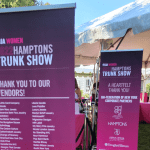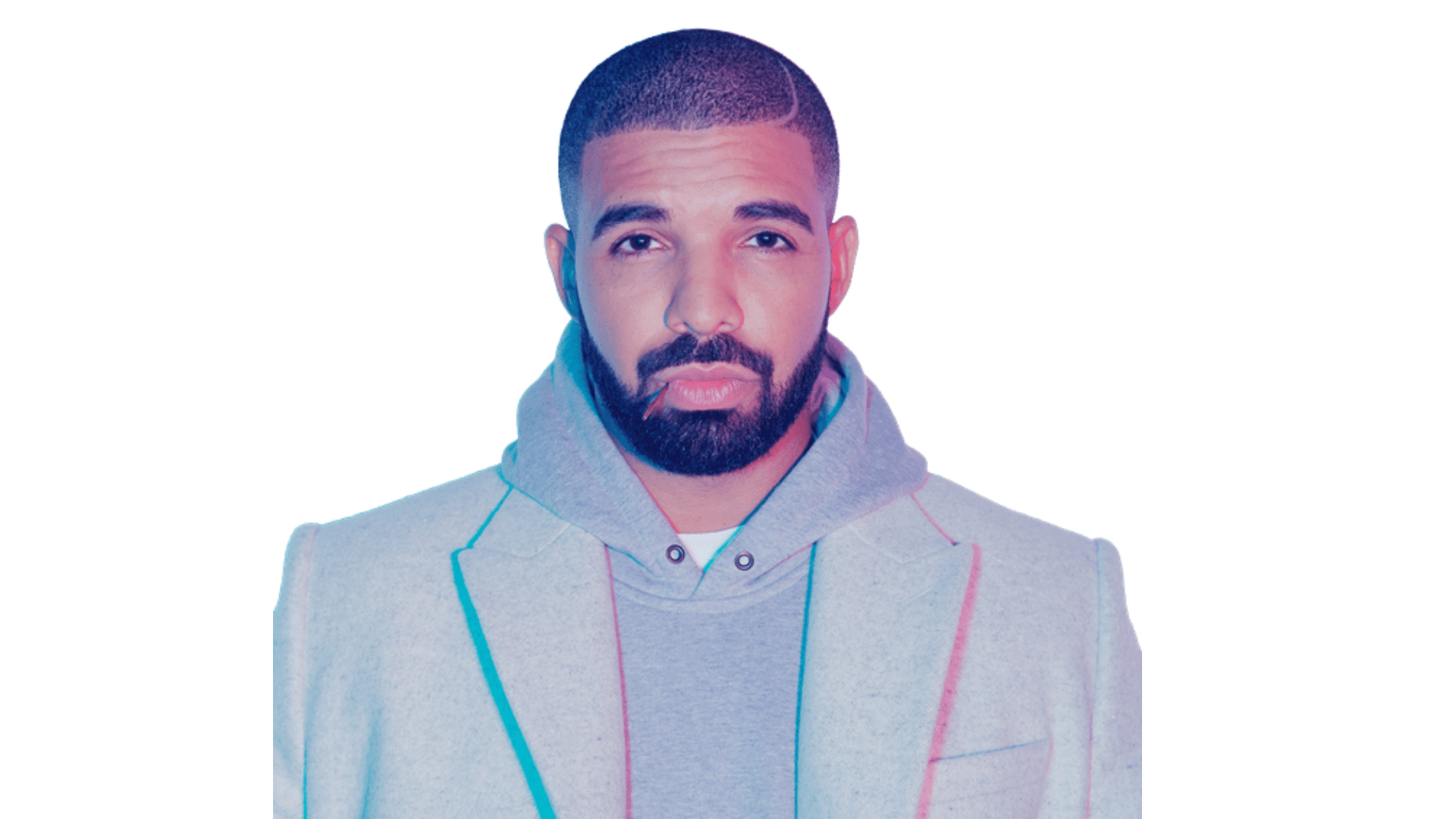It’s no secret that the very nature of the music industry is changing. In the past, genres were all but segregated. Those who managed to break through barriers were few and far between. To be candid, the rap and hip-hop space have long been dominated by heterosexual Black males. Sure, there was always a token woman and White man here or there, but, for the most part, hip-hop was a relatively homogenous group.
Enter Eminem
Before we get into Drake, we have to take time to revisit the epic career of the most successful White rapper, Eminem. Before Marshall Mathers stepped onto the scene, it was nearly impossible for White rappers to be taken seriously. Sure, they would emerge from time to time, and several of them had a few hits and pretty good runs on the hip-hop circuit. Ultimately and inevitably, the buzz would die down, the rappers would be written off as gimmicky, and they would disappear into the night.
Although Eminem was by no means a Jewish rapper, he was absolutely instrumental in breaking the rap mold and making it possible for other demographics to be heard and taken seriously as more than one-hit-wonders or summer flings. And this is not to say he totally broke the glass ceiling in terms of White rappers who wanted to pursue long-term careers. Those such as Macklemore, Iggy Azalea, and many others have shown us that the rap world still loves to adore gimmicky artists for a short time before they get sick of their sound and spit them out in a fairly predictable cycle.
In the same breath, I’d be remiss if I didn’t point out that even though Eminem’s career was, and still is, partially based on stereotypes and caricatures; his rap persona embodies the resentments and concerns of economically stressed Whites. Eminem’s music is very much heavy/death metal meets hip-hop. His impeccably poetic lyrics were always based on horrific and taboo subjects such as rape, murder, molestation, and more. Though Eminem showed the world that it was possible for a White rapper to be taken seriously, he also showed us that this was only true to a certain extent and in certain ways. His brilliance, many say, is that he does this simultaneously with complete sincerity as a participant, but also as a self-aware critic – a combination that is very Jewish in and of itself.
Eminem Vs. Drake
In true hip-hop fashion, fans speculated that Slim Shady had a few shady words to say about Drake. The controversial lyrics from his song, “Lucky You,” from his surprise album, Kamikaze, included: “I got a couple of mansions / Still I don’t have any manners / You got a couple of ghostwriters / But to these kids it don’t actually matter / They’re askin’ me, ‘What the f**k happened to hip-hop?’ / I said, ‘I don’t have any answers.'”
Although the White rapper eventually denied the claims that these lyrics were geared towards Drake, it’s hard to ignore that Drake is one of the top rappers who has long since been rumored to have multiple ghostwriters. In fact, there were some music fans that believed the emergence of artists like Drake marked the beginning of the end of real hip-hop.
Eminem said he wasn’t talking about Drake, but he also never said who he was referring to. Either way, Eminem asserts that Drake makes “great music,” and that he actually likes Drake as a person since he had been nice to one of his daughters in the past. Whatever the truth, Drake still got a fantastic shout-out from one of the industry’s most disgruntled residents.
“Eminem asserts that Drake makes “great music,” and that he actually likes Drake as a person…”
Drake was an Anomaly
When Drake emerged onto the scene, he was essentially an anomaly. If you had told hip-hop fans of yore that a commercial-level half-Jewish teen actor would one day dominate the rap charts, they would’ve immediately hit the self-destruct button after relentlessly making fun of you for even suggesting such a thing.
Nevertheless, this is exactly what came to pass. The product of an African American father and a White Jewish mother, Drake’s hip-hop persona epitomizes the curious melting pot that is America despite – or perhaps due to – being Canadian.
Drake was unlike anything before in the rap industry; he was a smooth talker, part-time crooner who loved the ladies. Round around the edges and far from the typical “thug” persona that continues to dominate parts of the rap industry, Drake showed up with his snazzy sweaters and songs about loving women, which put him in a class all his own from the very beginning. Despite the fact that rap and hip-hop are considered innately American art forms, born out of the blight of earlier endemic urban destitution and still too-present violence, Drake managed to break into the industry as a Canadian native. And did I mention he’s a Jew? OK, just making sure…
Drake and the New Hip-Hop/Jewish Subculture
Not only was Drake a much more female-friendly, polished example of what a rapper can be, he also introduced his own unique brand of Judaism to the masses. Almost from the very beginning, he weaved Jewish references into his lyrics. For instance, in his 2009 song “Still Drake,” he states, “I was born to do it, born to make bomb music/I flow tight like I was born Jewish/Well, actually I was born Jewish.”
Whether being a Jewish rapper is trendy or not, it’s clear that Drake was determined to make it trendy. Before Drake came along, most Jewish references in hip-hop were more allusions to the notion that rich Jews run the entertainment industry – a stereotype, and caricature, that has been shared by a wide variety of entertainers over the years. Also examined in popular culture has been the dynamic of relationships between older White Jewish music executives and younger Black female songstresses. The character of Hesh Rabkin, played by Jerry Adler in the hit HBO series The Sopranos, had a recurring storyline about this.
Let’s Be Clear
It’s still not trendy to be a Jewish rapper. Nevertheless, having a Black man become the (handsome) face of Jews in rap has allowed a Jewish/hip-hop subculture to emerge. Rather than hiding his Jewish affiliation, Drake opted to celebrate it on the global stage. For instance, he has done things such as post pictures of himself celebrating Passover with his family. He also made light of his Jewish culture by playing a satirical reenactment of a Bar Mitzvah on Saturday Night Live. This may seem minuscule to some, but this is actually a bold move to make for someone in an industry that does not tend to favor either the Jewish culture generally, or the history of Jews in the industry.
Speaking of Bar Mitzvahs, one of Drake’s most proudly Jewish moments occurred in his video for “HYFR.” In it, he recreated his Bar Mitzvah by rapping and praying in a Miami synagogue and included cameos from his close celeb/non-celeb family and friends. In true hip-hop fashion, the video gets “turned up” and ends in an epic celebration complete with the head of his record label, Lil’ Wayne, smashing his skateboard on a table.
Although there is obviously still work to be done in terms of Judaism being embraced in hip-hop, the success of Drake has made it possible for a wide variety of Jewish hip-hop artists to become successful in their own rights, many of whom have cult-like followings. Some of these artists are:
- Lil Dicky
- Asher Roth
- Matisyahu
- Action Bronson
- Hoodie Allen
- Mac Miller
It’s Not What You Do; It’s How You Do It
The reason Drake was able to become a successful Jewish rapper is that he embraced his Jewish culture rather than using it as a crutch, secret shame, or gimmick. Drake is a Black man who grew up on hip-hop and R&B music and just so happens to be Jewish. Unlike rap artists such as the Beastie Boys, who all but hid their Jewish backgrounds, Drake won the hip-hop community over by simply being himself. Although the Beastie Boys were major in the hip-hop realm, they were still seen as more rocker-boy caricatures creating a safe version of an “urban” space for a mostly White shopping mall crowd that partied in their parents’ suburban basements.
Though still not without detractors, being Jewish no longer carries the stigma it once did in the rap and hip-hop space. Mac Miller and Action Bronson have/had amazing rap careers, and were certainly taken seriously. Arguably, neither of these artists would have been able to enjoy the level of success they reached without Drake.
This is especially the case for Action Bronson, an artist that has been highly revered for his heavy-hitting lyrics. Before Drake, a hefty bearded Jewish man would have never been listed among the top hip-hop lyricists in the game. Much like Drake, he also references his Jewish culture. In his song, “Steve Wynn,” he says, “I’ve been wildin’ since the rabbi snipped it.” Moreover, he also made a song entitled “Barry Horowitz,” a track about a Jewish wrestler from the 80s.
We are now in an age in which peppering Jewish words and phrases into hip-hop lyrics is not only acceptable, but it’s respected. Proudly Jewish rappers who have seen any level of success since Drake stepped on the scene can do what Drake suggested with his debut studio album: Thank Him Later.
The Author
About Ivy Lock: Ivy Locke is a freelance writer who has worked with a wide variety of publishers over the years. She enjoys writing about topics such as pop culture, music, philosophy, psychology, and more. Follow her on Twitter @TheeIvyLocke and Instagram @Writer_IvyLocke.







